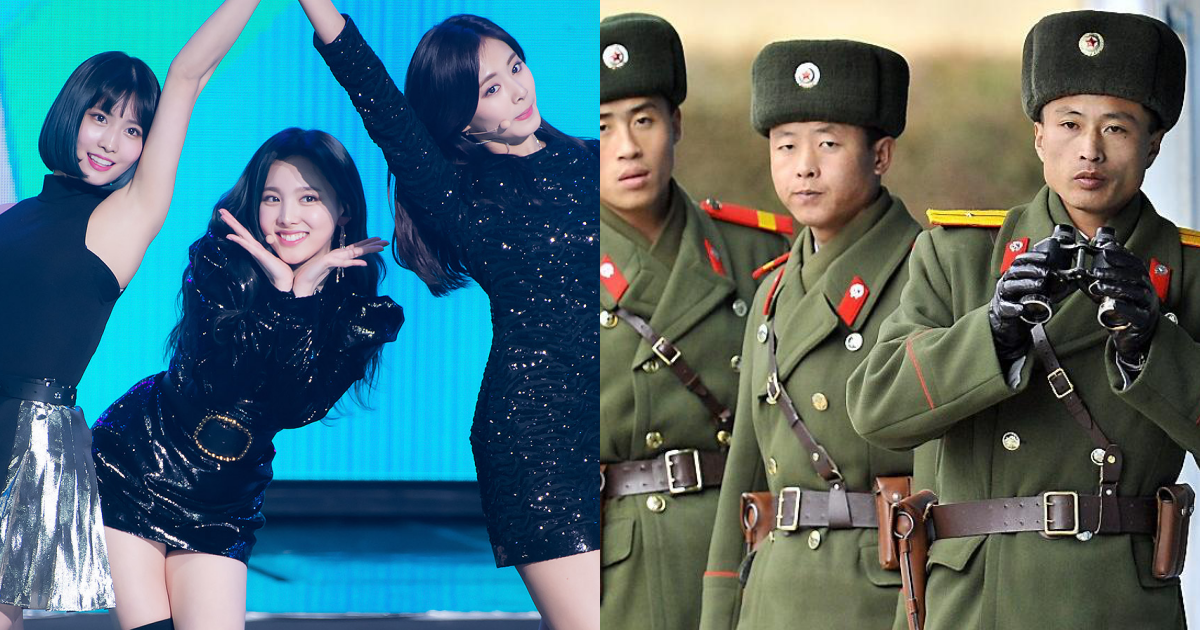K-Pop’s Influence in North Korea

North korean kpop – Despite North Korea’s strict cultural policies, K-Pop has gained immense popularity among North Koreans. Its catchy melodies, vibrant choreography, and relatable lyrics have resonated with North Korean youth, providing a glimpse into a different world beyond their borders.
North Korean pop music, or K-pop, has gained immense popularity worldwide. However, there’s another captivating topic that’s worth exploring: pittsburgh steelers brandon aiyuk. Brandon Aiyuk, a talented wide receiver for the Pittsburgh Steelers, has showcased his exceptional skills on the field.
Back to the realm of K-pop, North Korean artists continue to captivate audiences with their unique and captivating performances.
The influence of K-Pop on North Korean culture is undeniable. It has inspired fashion trends, hairstyles, and even language. North Koreans have adopted Korean slang and phrases, and some have even learned to sing and dance in Korean.
The pulsating rhythms of North Korean K-pop echo through the streets, carrying tales of forbidden dreams and longing. Amidst this musical tapestry, a glimmer of hope emerges in the form of Tim Scott , a beacon of courage and determination.
His unwavering belief in freedom and human rights resonates with the yearning of North Korean artists, inspiring them to break free from the shackles of oppression. As the K-pop melodies soar, they become a testament to the indomitable spirit that yearns for a brighter future.
North Korean Citizens Influenced by K-Pop, North korean kpop
Numerous North Korean citizens have been influenced by K-Pop, including:
- Hyon Song-wol: A former member of the North Korean pop group Moranbong Band, Hyon Song-wol is known for her love of K-Pop and her influence on North Korean youth culture.
- Thae Yong-ho: A former North Korean diplomat who defected to South Korea, Thae Yong-ho has spoken about the popularity of K-Pop in North Korea and its impact on North Korean society.
North Korean K-Pop Groups: North Korean Kpop

North Korea has been largely isolated from the global music scene, but there have been some reports of K-Pop groups emerging within the country. These groups operate under strict government control and are primarily aimed at domestic audiences.
One of the most well-known North Korean K-Pop groups is the Moranbong Band, an all-female group formed in 2012. The band has performed for high-ranking officials and has released several albums. Their music is often patriotic and glorifies the North Korean regime.
Another North Korean K-Pop group is the Samjiyon Orchestra, a large ensemble that performs a mix of traditional Korean music and modern K-Pop songs. The orchestra has performed in China and Russia and has been praised for its technical skill and elaborate stage shows.
North Korean K-Pop groups face a number of challenges, including limited access to resources, strict censorship, and a lack of international exposure. However, they also have some opportunities, such as the potential to promote North Korean culture and to connect with a wider audience.
Moranbong Band
The Moranbong Band was formed in 2012 by order of Kim Jong-un. The group consists of 10 female members, all of whom are graduates of the Pyongyang University of Music and Dance. The band’s music is a mix of K-Pop and traditional Korean music, and their lyrics often praise the North Korean regime.
The Moranbong Band has performed for high-ranking officials in North Korea and has also toured China and Russia. The band has been praised for its technical skill and elaborate stage shows, and has been compared to South Korean girl groups such as Girls’ Generation and 2NE1.
However, the Moranbong Band has also been criticized for its lack of originality and for its propaganda-laden lyrics. Some critics have also accused the band of being a tool of the North Korean government.
Samjiyon Orchestra
The Samjiyon Orchestra was formed in 2013 by order of Kim Jong-un. The orchestra consists of over 100 musicians, and its repertoire includes a mix of traditional Korean music and modern K-Pop songs.
The Samjiyon Orchestra has performed in North Korea, China, and Russia. The orchestra has been praised for its technical skill and elaborate stage shows, and has been compared to South Korean orchestras such as the Seoul Philharmonic Orchestra and the KBS Symphony Orchestra.
However, the Samjiyon Orchestra has also been criticized for its lack of originality and for its propaganda-laden performances. Some critics have also accused the orchestra of being a tool of the North Korean government.
Cross-Border Cultural Exchange
K-Pop has emerged as a powerful catalyst for cultural exchange between North and South Korea, transcending the political divide that has separated the two nations for decades.
Through the shared passion for K-Pop, people from both sides of the border have found common ground, bridging cultural and ideological differences. K-Pop concerts and events have provided rare opportunities for inter-Korean interactions, fostering a sense of unity and reconciliation.
K-Pop’s Impact on Inter-Korean Relations
- Increased dialogue and communication: K-Pop has created a shared cultural space where North and South Koreans can interact and engage in dialogue, promoting understanding and empathy.
- Reduced tensions and hostility: The shared appreciation for K-Pop has contributed to a decrease in tensions and hostility between the two Koreas, creating a more conducive environment for diplomatic negotiations.
- Potential for future cooperation: The cross-border cultural exchange facilitated by K-Pop could pave the way for future cooperation in other areas, such as economic development and peace initiatives.